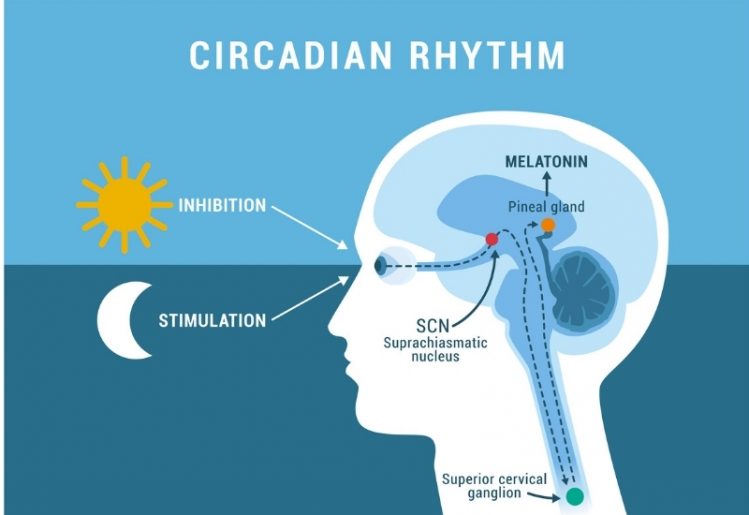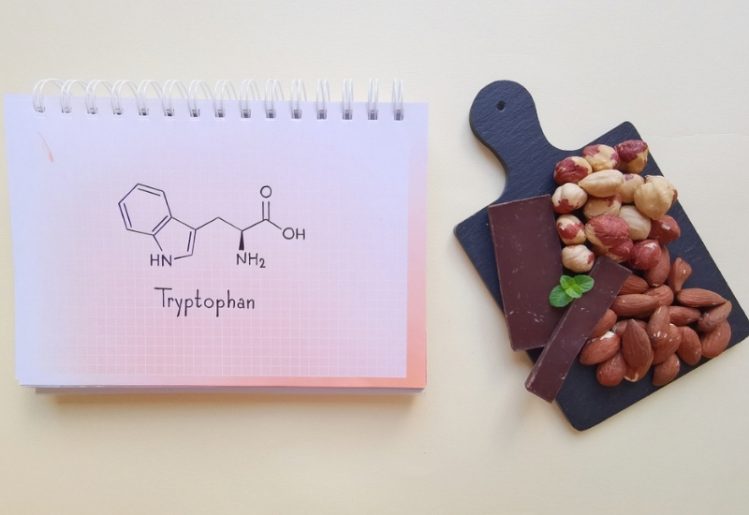The therapeutic properties of omega-3s can help in the treatment of many short-term ailments while also providing protection against long-term health conditions. But omega-3 fatty acids are not just beneficial for adults; research has proven that there is no shortage of health benefits of omega-3 for kids. This important fatty acid can produce a profound effect on children’s short-term and long-term health.
Here is what you need to know about omega-3 fatty acids, how they can boost your child’s health and wellness in a variety of ways and how you can ensure that your child is getting sufficient amounts of this nutrient.
What Are Omega-3 Fatty Acids?
 If you have spent any time researching vitamins and minerals, you have likely run across studies documenting the many benefits of omega-3 fatty acids. But what are omega-3s exactly? These fatty acids are vital to many health functions, most specifically fetal development, immunity strength, heart health and brain function.
If you have spent any time researching vitamins and minerals, you have likely run across studies documenting the many benefits of omega-3 fatty acids. But what are omega-3s exactly? These fatty acids are vital to many health functions, most specifically fetal development, immunity strength, heart health and brain function.
Because your body does not produce these fatty acids on its own, they are considered essential. This means that you need to be proactive about getting them from food and other supplements.
There are three primary types of omega-3 fatty acids. You can find alpha-linolenic acid (ALA) in plant foods, including some vegetables, nuts, seeds and vegetable oils. Eicosapentaenoic acid (EPA) and docosahexaenoic acid (DHA) are found in fatty fish such as tuna and salmon. Many people also choose to obtain their EPA and DHA from supplements.
Omega-3 for Kids Benefits
Although the generous health benefits of omega-3s is well-documented, it has been more recently that the advantages of this fatty acid for the growing bodies of children has come into light. These benefits include both physical health advantages and an improvement of mental wellness. Here are some of the most compelling reasons to incorporate omega-3 fatty acids into your child’s diet.
Protects Against Asthma
A study out of the UK shed light on how the intentional intake of more omega-3 fatty acids can offer protection against asthma. The intake of these acids provides a preventative measure in the development of asthma in children.
Boosts Brain Health
What parent does not want to boost their child’s brain function? Kids who regularly eat fatty fish or take an omega-3 supplement have been shown to score higher on intelligence quotient (IQ) tests. In addition, multiple studies have demonstrated that omega-3 supplements may decrease the symptoms of attention deficit hyperactivity disorder (ADHD).
Encourages Healthy Sleep Patterns
One of the reasons that children enjoy better mental health and brain function due to the intake of omega-3s is because this fatty acid also encourages healthy sleep patterns. The studies show that regular intake of omega-3s reduces sleep disturbances, supporting healthy sleep patterns.
Lowers Cholesterol Levels
Supplementing with essential fatty acids has been shown to offer protection to kids with unhealthy cholesterol levels. The protection is vital because it helps to guard against the development of heart disease later down the road. The intake of this nutrient provides this protection by increasing the level of healthy omega-3 fatty acids in the bloodstream. The research showed that an omega-3 supplement has the potential of changing the lipid profile of a child’s bloodstream, lowering their risk of heart disease later in life.
How to Incorporate More Omega-3s into Your Child’s Diet
While you may have to work a little harder to incorporate omega-3s into your child’s diet when compared with more accessible nutrients, it is still within reach if you are diligent about this practice. The amount of omega-3s needed to see optimal benefits largely depends on the age and size of your child. Your healthcare provider will be a good resource when determining the dosage goal that is appropriate for your child.
 Start with looking at ways to incorporate the omega-3s through food. The gold standard for omega-3s is cold-water fatty fish such as salmon, tuna, mackerel and sardines. Other good food choices include nuts, seeds and plant oils. Walnuts, chia seeds, flax and canola oil are some of the most accessible foods for children.
Start with looking at ways to incorporate the omega-3s through food. The gold standard for omega-3s is cold-water fatty fish such as salmon, tuna, mackerel and sardines. Other good food choices include nuts, seeds and plant oils. Walnuts, chia seeds, flax and canola oil are some of the most accessible foods for children.
Fortunately, many of today’s most kid-friendly foods are also fortified with omega-3s, making it even easier for your child to hit the recommended intake for optimal health. It is a good idea to get in the habit of reading labels to find foods that are high in this fatty acid.
Supplements also provide an extra layer of insurance for your omega-3 needs. There are a number of omega-3 supplements designed with a child’s growing body in mind, giving you the assurance that your child will not be deficient in this crucial building block for good health.
As more evidence pours in, it becomes even more obvious that kids can benefit from omega-3 fatty acids. Health-savvy parents would be wise to consider using these fatty acids as a means to supporting optimal health and wellness for their children.
 How COVID-19 lockdowns affect the immune system has become a common concern among many people in recent times. The concern is that isolation and social distancing could be contributing to poor immune system health by preventing people from exposing themselves to the bacteria, viruses and germs that would otherwise force the immune system to maintain stronger defenses.
How COVID-19 lockdowns affect the immune system has become a common concern among many people in recent times. The concern is that isolation and social distancing could be contributing to poor immune system health by preventing people from exposing themselves to the bacteria, viruses and germs that would otherwise force the immune system to maintain stronger defenses. There are many more ways to naturally
There are many more ways to naturally  In its most basic definition, melatonin is a hormone produced by the body’s pineal gland. The
In its most basic definition, melatonin is a hormone produced by the body’s pineal gland. The  In order to boost production of melatonin in the evening, you need to increase the levels of serotonin in the morning. You can support serotonin production by exposing your body to sunlight in the morning.
In order to boost production of melatonin in the evening, you need to increase the levels of serotonin in the morning. You can support serotonin production by exposing your body to sunlight in the morning. While
While  Instead of using your electronic device, create a relaxation ritual that you can do every night. This will help you train your brain to recognize the signs that it’s time for rest, while also helping you wind down. This can involve taking a warm bath, reading a good book or meditating to soft music. Any practice that you find relaxing and enjoyable can be included in your bedtime ritual.
Instead of using your electronic device, create a relaxation ritual that you can do every night. This will help you train your brain to recognize the signs that it’s time for rest, while also helping you wind down. This can involve taking a warm bath, reading a good book or meditating to soft music. Any practice that you find relaxing and enjoyable can be included in your bedtime ritual. Your body produces serotonin from the essential amino acid tryptophan.
Your body produces serotonin from the essential amino acid tryptophan.  As with many health conditions, a little exercise can go a long way in helping to combat a myriad of issues. Regular exercise has been shown to raise serotonin levels, giving you just one more reason to commit to a consistent routine.
As with many health conditions, a little exercise can go a long way in helping to combat a myriad of issues. Regular exercise has been shown to raise serotonin levels, giving you just one more reason to commit to a consistent routine. While setting the stage for slumber is one role of melatonin, it does much more than just help people fall asleep. Even after you fall asleep, melatonin acts as a powerful antioxidant, assisting the body in maintaining health and repairing damage throughout the night.
While setting the stage for slumber is one role of melatonin, it does much more than just help people fall asleep. Even after you fall asleep, melatonin acts as a powerful antioxidant, assisting the body in maintaining health and repairing damage throughout the night. If you spend the majority of your day indoors, you may be inhibiting the way your circadian rhythm functions. By spending some time outside, where you can benefit from direct sunlight exposure, you’ll be helping your brain adjust to the 24 -hour cycle. Getting that sunlight earlier in the day will help kick start the production of melatonin earlier in the evening.
If you spend the majority of your day indoors, you may be inhibiting the way your circadian rhythm functions. By spending some time outside, where you can benefit from direct sunlight exposure, you’ll be helping your brain adjust to the 24 -hour cycle. Getting that sunlight earlier in the day will help kick start the production of melatonin earlier in the evening.